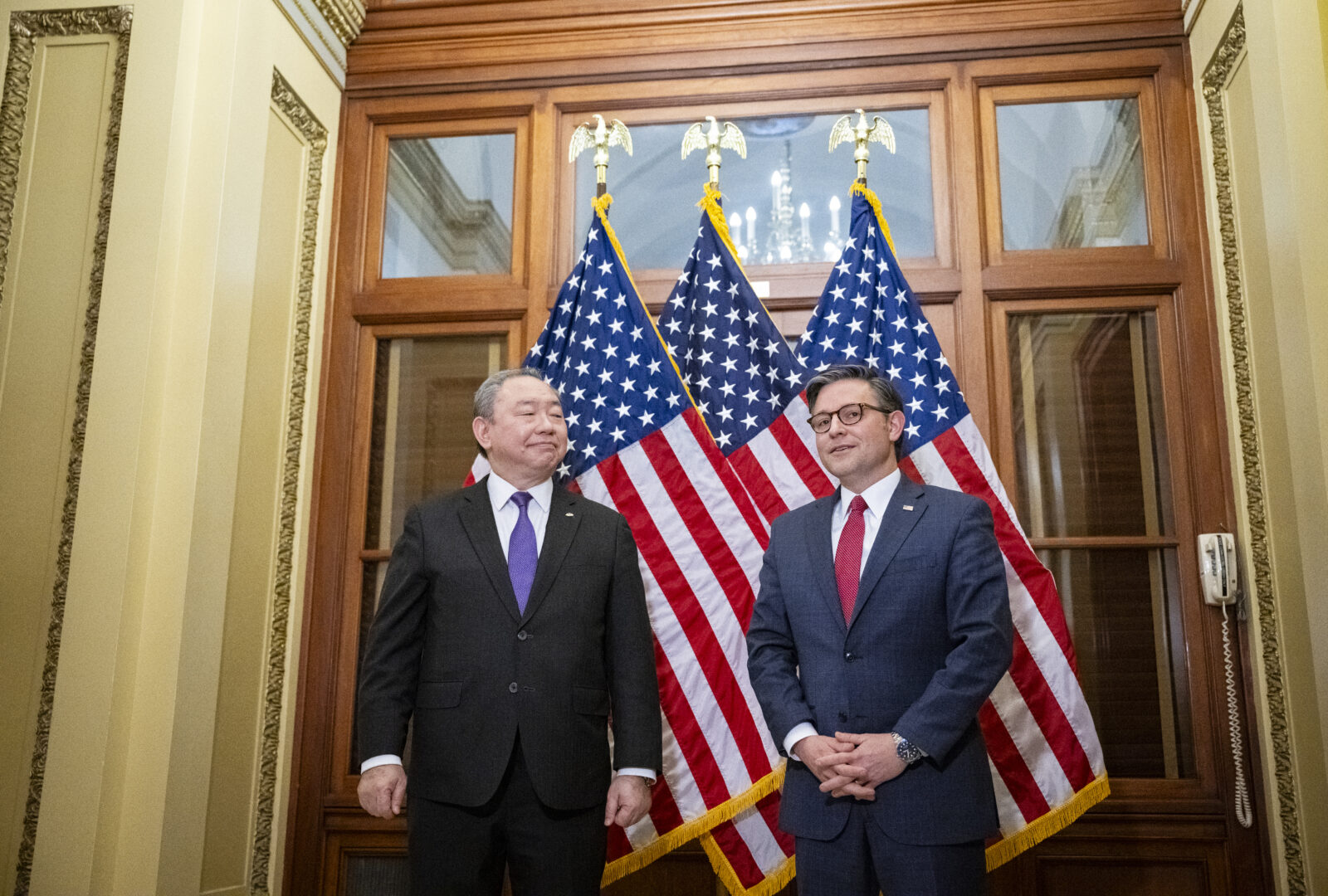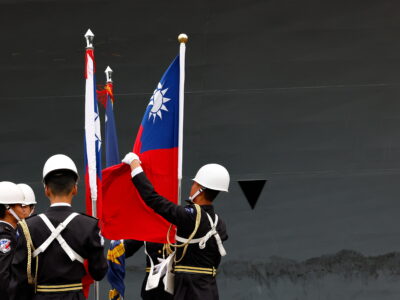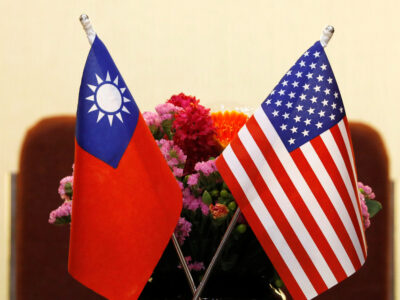Assistance to Taiwan: More Than a “Yes” or “No” Question
Overview
Taiwan has consistently been a recipient of assistance from the United States despite the occasional tensions such assistance has created in the U.S.–China relationship. The United States should continue to furnish aid. Taiwan is an important democratic friend with long-standing ties to the United States, and a sudden failure to provide support could tempt China to increase pressure on the island, damaging overall U.S. credibility and regional stability.
At the same time, it is critical that policymakers carefully assess the nature and form of U.S. support for Taiwan. They must discard the simplistic misconception that any “tough on China” measure makes deterrence stronger. Each specific proposal should be examined to determine whether it makes war in the Taiwan Strait more likely or less likely, with attention given not only to military aid but also the preservation of the essential political understanding reached between Beijing and Washington in the 1970s. This understanding, which has kept the peace across the Taiwan Strait for decades, includes two components:
- China would seek a peaceful, uncoerced resolution of the Taiwan issue.
- The U.S. would not treat Taiwan as a sovereign, independent nation or formal military ally (a central tenet of the long-standing One China Policy).
Forms of support for or interaction with Taiwan that violate this understanding will harm the interests of the United States and Taiwan by undermining stability in the Taiwan Strait — making war more rather than less likely. If Washington formally or informally embraces Taipei’s independence, Beijing is highly likely to abandon its own commitment to peaceful unification and increase its reliance on military force. This could very likely result in war.
Examples of harmful measures include actions that imply Taiwan is a sovereign, independent nation, the deployment of U.S. military forces to Taiwan, bills that treat or characterize Taiwan as a strategic location critical to America’s defense posture in Asia and hence to be kept separate from China, and legislation designed with the sole intention of bashing China. Below, we give examples and explain further how members of Congress can judge whether Taiwan–related legislation improves or undermines stability.
Discussion
Security assistance has been a consistent and important component of the United States’ relationship with Taiwan. The provision of aid, carefully balanced alongside the One China Policy and credible “strategic ambiguity,” has helped to keep the peace in the strait for more than 45 years.
The U.S. commitment to “provide Taiwan with arms of a defensive character,” and to maintain the capacity to defend Taiwan, was outlined in the 1979 Taiwan Relations Act, which identified regional peace and stability as U.S. interests. The United States continued to sell a significant amount of arms to Taiwan — but did not provide direct military aid.
This changed after the passage in 2022 of the National Defense Authorization Act for Fiscal Year 2023, which included the Taiwan Enhanced Resilience Act. That year’s NDAA included language that fast-tracked sales to Taiwan under the Foreign Military Sales program and authorized direct loans and grants through a Foreign Military Financing program to provide equipment, training, and other support. It also authorized the use of Presidential Drawdown Authority to support Taiwan — allowing the United States to directly transfer weapons from U.S. stockpiles to the island. This authorization meant that the United States began sending direct military aid to Taiwan, rather than just selling arms. In the FY2025 NDAA, Congress authorized the Taiwan Security Cooperation Initiative for up to $300 million, and the United States continues to provide significant support to Taiwan in many forms. Arms sales continue: Congress was notified of more than $28 billion in Foreign Military Sales to Taiwan between 2015 and 2025. Presidential Drawdown Authority has been used to send $1.5 billion worth of U.S. stockpiled weapons to Taiwan, and the United States finances arms sales at significant levels through the Foreign Military Financing program.
Assessing Taiwan assistance
The United States’ relationship with Taiwan has shifted in recent years, largely due to increased tensions with China. The wider deterioration in U.S.–China ties often threatens to derail the delicate balance of understanding over Taiwan. If the Chinese government concludes that the United States has abandoned the old understanding over Taiwan and will accept an independent Taiwan or work for a permanent, de facto separation, Beijing is very likely to increase its reliance on military force and abandon its own commitment to peaceful unification. This could very likely result in war — and war over Taiwan is not in the U.S. national interest.
Examples of recent U.S. measures that have imperiled the status quo over Taiwan include:
- Actions that imply Taiwan is a sovereign, independent nation. For example, in June 2025, the House of Representatives passed a bill that supports Taiwan’s admission to the International Monetary Fund, which is only open to sovereign countries, and then–Speaker of the House Nancy Pelosi visited the island in 2022. Such actions call into question the credibility of the One China Policy.
- The deployment of U.S. military forces to Taiwan and other actions that indicate a U.S. commitment to militarily defend the island. In 2024, reports confirmed a U.S. military presence in Taiwan. Lawmakers like Representative Andy Biggs, Senator Thom Tillis, and Representative Ami Bera have called for moves toward “strategic clarity,” in which the U.S. would commit to defending Taiwan in case of an invasion by China. The House version of the FY2026 NDAA includes a report on the feasibility of a multilateral counterblockade exercise and a report on what the Department of Defense will do to “expand the scope and scale of multilateral military exercises and operations in the region.” Military and rhetorical moves like these weaken the credibility of the United States’ policy of strategic ambiguity.
- Bills that treat or characterize Taiwan as a strategic location critical to America’s defense posture in Asia. For example, an amendment offered to the FY2024 NDAA said, “Taiwan’s territorial integrity and long-standing independence from the People’s Republic of China is a matter of national security,” explicitly repudiating the One China Policy.
- Counterproductive China–bashing bills. For example, the vote to prohibit the U.S. Department of Defense from purchasing or making any map that shows Taiwan as part of China antagonized Beijing without any clear national security benefit or purpose.
Conclusion
While Taiwan is a U.S. interest to a sufficient degree to merit security assistance, it is not a vital U.S. interest that warrants a war with China. U.S. policymakers must carefully assess each proposal to determine whether it makes war in the Taiwan Strait more likely or less likely. They must pay attention not only to military aid but also the preservation of the essential political understanding reached between Beijing and Washington in the 1970s. Further, given the importance of the Taiwan issue to China, military deterrence alone will not eliminate the possibility that China will resort to war should it perceive that the United States seeks a permanently independent Taiwan. Efforts to protect Taiwan that rely solely on U.S. assistance and ignore the long-standing U.S. diplomatic understanding with China are dangerous and destabilizing.
To ensure Taiwan aid is beneficial, the United States should stop taking the counterproductive measures outlined above and should also be offering Beijing reassurances that:
- Washington will maintain only unofficial relations with Taipei, with clear limits on the level and types of contact that occur.
- The United States will remain neutral on the final legal status of the island, even as it maintains strong cultural, commercial, and unofficial relations with Taiwan.
- The United States does not view Taiwan as a vital national interest or strategic asset — but does have an interest in peace and stability in the region and remains firmly opposed to unification through force or coercion.
Security assistance to Taiwan is an important part of the United States’ strategy in the region. The United States should not abandon Taiwan by precipitously reducing assistance and support for the island — such actions could tempt China to increase pressure on the island and damage overall U.S. credibility.
However, aid to Taiwan can be counterproductive in the context of an increasingly adversarial U.S. relationship with China and the erosion of the U.S.–China understanding over Taiwan. Continued Taiwan aid should happen alongside reassurances to China that strengthen the status quo understanding reached in the 1970s. Otherwise, aid risks being counterproductive and detrimental to both Taiwanese and U.S. security interests.





